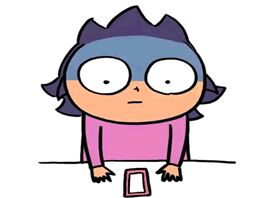华人漫画家记录中美疫情众生相
|
The Chinese-American cartoonist Weng Chen has transformed her surreal life during the epidemic into comics, which have resonated with people in both the US and China. The creative mind records her true life in humorous satire, revealing her dilemmas and frustrations when confronting different COVID-19 responses from two cultural backgrounds. The artist now lives in Seattle, the first city ravaged by the coronavirus in the US. And the first-known US case, from the Life Care Center in Kirkland, Washington, is only a 10-minute drive from her daughter's school. Moreover, months earlier, she was already anxiously checking the news from her hometown of Wuhan, the hardest-hit city in China.
The proximity of the novel coronavirus inspired her to steer her creations, which previously focused on parent-child themes, to life changes under the threat of the disease. Washington state announced a stay-at-home order on March 23. However, her two children, ages 7 and 5, had spent three weeks at home already due to the suspension of classes in her school district. And if Weng's experience is any measure, the multitasking between work and child care at home can prove challenging. The students do have online courses from school, but it's the parents' duty to ensure their children carry out the study on the app. "The teacher will give assignments online, and the student can choose to complete or ignore them," she said. "Even if you submitted your assignment, the teacher won't review it. It's pretty casual." According to Weng, even the simplest courses were called off due to fairness concerns — some households without internet connections and computers objected to the e-learning experience — and consequently no one could learn from home. As an Asian American, Weng is prudent about protection and naturally considers wearing a mask a necessity. In one of her strips, she listed several common circumstances for Asians to put on masks in daily life. In contrast, Americans instinctively say "nah" to masks even when told they can safeguard against Ebola and HIV. After the face mask story was published on social media platforms abroad, comments trickled in, such as this one: "Some Americans use them for robbing 7/11 stores." In the early days of the outbreak, the artist said she was really worried while her neighbors were still at ease. "I can't step in to persuade them to wear masks," she said. "I feel helpless when I have to watch the situation getting more severe." However, as the pandemic worsens in the US, Weng's comics also chronicle Americans' changing attitude when they finally come to realize the importance of social distancing, which, to some degree, is good news for her. She described people's overreactions to Wuhan in one of her strips. "I think since it happened there, it is what it is," she said. "This could happen in any city and I don't feel stigmatized by it." The artist believes people who have ingrained prejudices could shout at anything, a sad result of their own knowledge and worldviews. While acknowledging the deep-rooted stereotypes of Chinese in US society, Weng says "many incidents occurred because we don't know each other". And the Chinese-American offers insightful stories from a personal perspective to overcome this ignorance. The cartoonist said she frankly has no intention to justify or explain anything. "I like to draw my life. When people read my comics, they may think 'we're alike'," she said. "Then they'd realize I am from China." |









